Early LGBT+ Student Activism / Activismo Estudiantil Temprano LGBT+
Luis González-Díaz
TRIGGER WARNING: This blog post, or pages it links to, contains information about sexual assault and/or violence which may be triggering to survivors.
Advertencia: Este artículo, puede contener material sobre asalto sexual o violencia que podría ser desencadenante para algunos sobrevivientes.
Continuing the narrative of LGBT+ History Month, an aspect of LGBT+ history that greatly influenced campus life for the community was the activism from the various groups on campus in the 1970s. The first presence of LGBT+ activism on campus started in 1971 with backlash to the controversial play “Boys in the Band” being presented at Iowa State. For more information on that particular event, check out my last article.
Continuando en la narrativa del mes de historia LGBT+, un aspecto de historia que gran mente influenció la vida estudiantil en la universidad, fue el activismo de varios grupos en los 1970’s. La primera presencia de activismo LGBT+ en la universidad, empezó en 1971 con la repercusión causada por la obra teatral controversial “Boys in the Band” siendo presentada. Para más información, verifica mi último artículo.
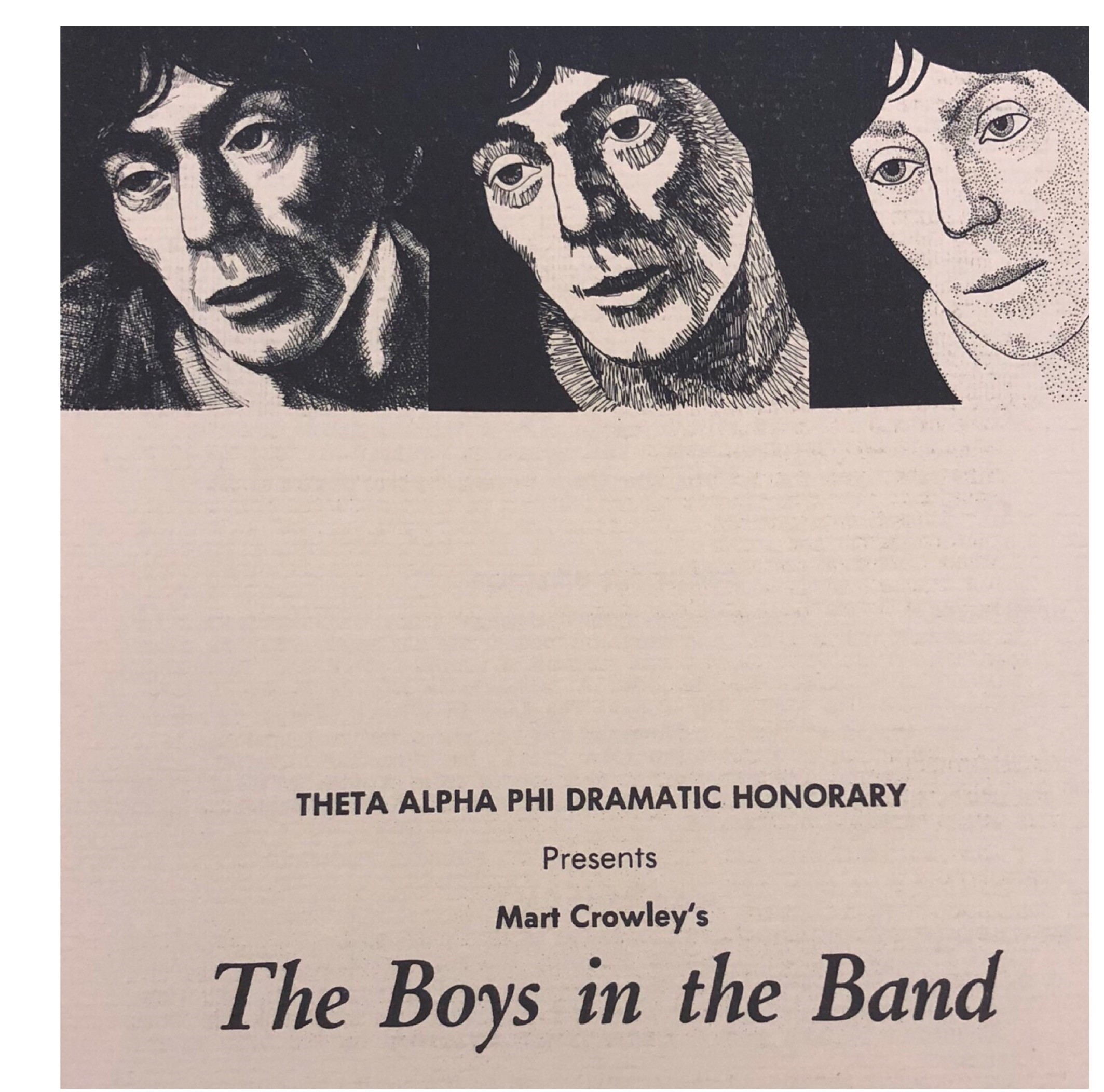
Nonetheless, on October 8th, 1974, students from the Gay People’s Alliance and the Lesbian Alliance might have demonstrated one of the biggest acts of activism and resistance in the decade, when they appeared in a local tv station in Ames called WOI-TV. The invitation to participate in the program arose from a controversial episode of Marcus Welby M.D. titled “The Outrage” aired by ABC TV. In the fictional drama, a mother discovers that her teenage boy was sexually assaulted by one of his school teachers when they were out at a camping trip. The teenager nonetheless was too ashamed to admit it to her mother but eventually confessed that it was his male science teacher that had done it.
No obstante, el 8 de octubre de 1974, estudiantes del “Gay People’s Alliance” y el “Lesbian Alliance” demostraron uno de los actos más grandes de activismo y resistencia en la década, cuando aparecieron en una estación de televisión local en Ames llamada WOI-TV. La invitación ocurrió a causa de un episodio controversial de un programa llamado Marcus Welby M.D titulado “The Outrage”, televisado por ABC TV. En el drama ficticio, una madre descubre que su hijo adolescente fue asaltado sexualmente por uno de sus maestros en un viaje estudiantil auspiciado por la escuela. Sin embargo, el niño adolescente estaba demasiado avergonzado para admitirlo ante su madre, pero finalmente confesó que era su maestro de ciencias lo que lo había hecho.
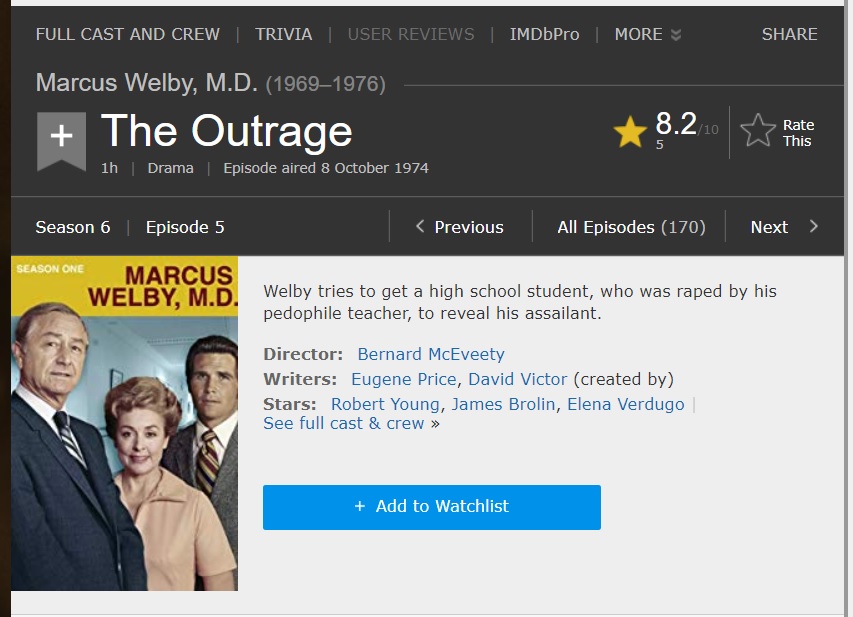
The airing of this episode caused much outrage for LGBT+ communities nationwide because of the perpetuation of negative light over the community, in a time where LGBT+ activism was just starting. The airing of the episode was a direct attack on the activism that was present at that time. The episode was pulled from communities in Boston and Philadelphia.
La emisión de este episodio causó mucha indignación para las comunidades LGBT + en todo el país debido a la perpetuación de la luz negativa sobre la comunidad, en un momento en el que el activismo LGBT + apenas estaba comenzando. La emisión del episodio fue un ataque directo al activismo que estaba presente en ese momento. El episodio fue retirado de comunidades en Boston y Filadelfia.
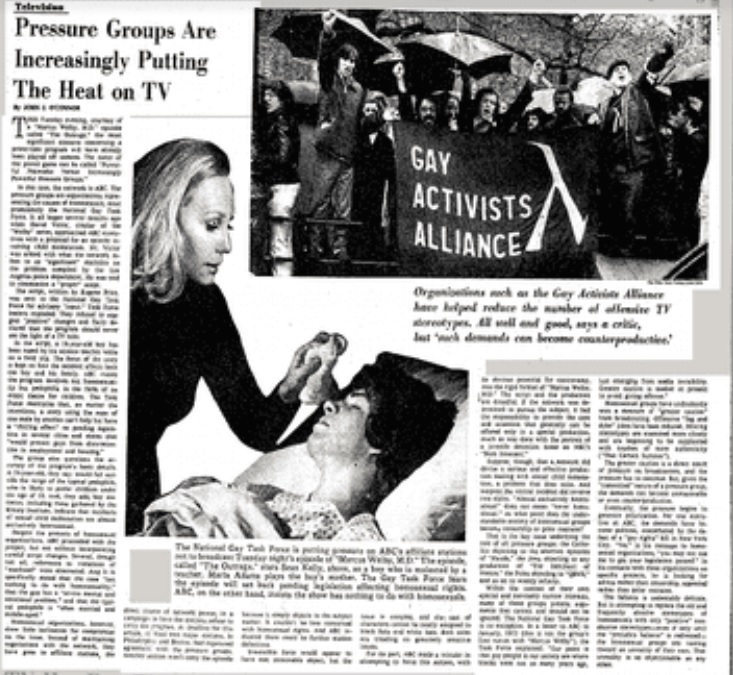
In Ames, the Gay People’s Alliance and the Lesbian Alliance wanted it to be pulled, but WOI-TV was not doing it. The TV station nonetheless, invited both groups to participate in Betty Lou Varnum’s “Dimension Five” program that aired in central Iowa at 10PM.
En Ames, el “Gay People’s Alliance” y el “Lesbian Alliance” querían que se retirara, pero WOI-TV no lo estaba haciendo. No obstante, la estación de televisión invitó a ambos grupos a participar en el programa “Dimensión Cinco” de Betty Lou Varnum que se emitió en el centro de Iowa a las 10 P. M.
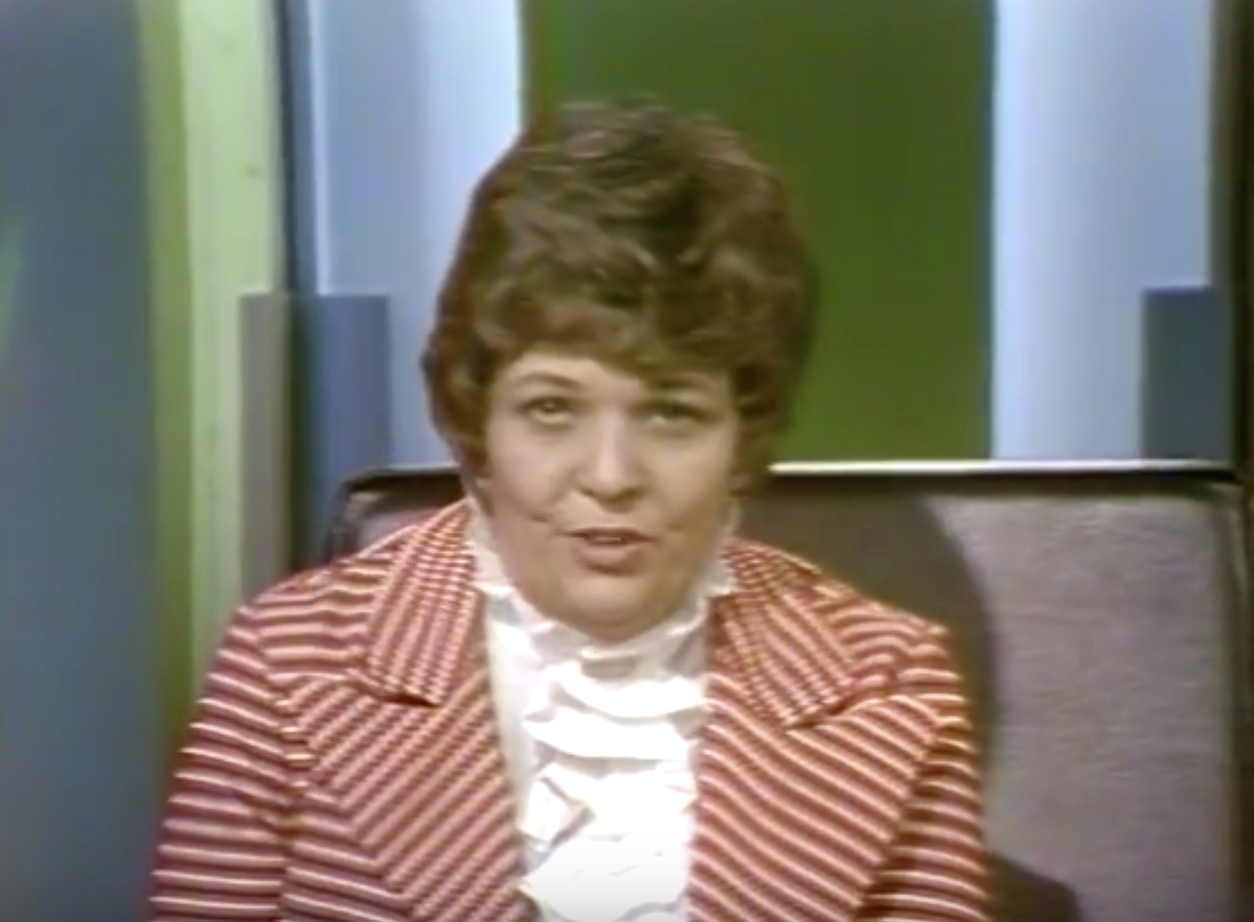
The panelists were Carolyn Czerna, Karen Moore, Kay Scott, Connie Tanzo, Steve Court, Jim Osler, David Windom, and Dennis Brumm.
Los panelistas fueron Carolyn Czerna, Karen Moore, Kay Scott, Connie Tanzo, Steve Court, Jim Osler, David Windom y Dennis Brumm.
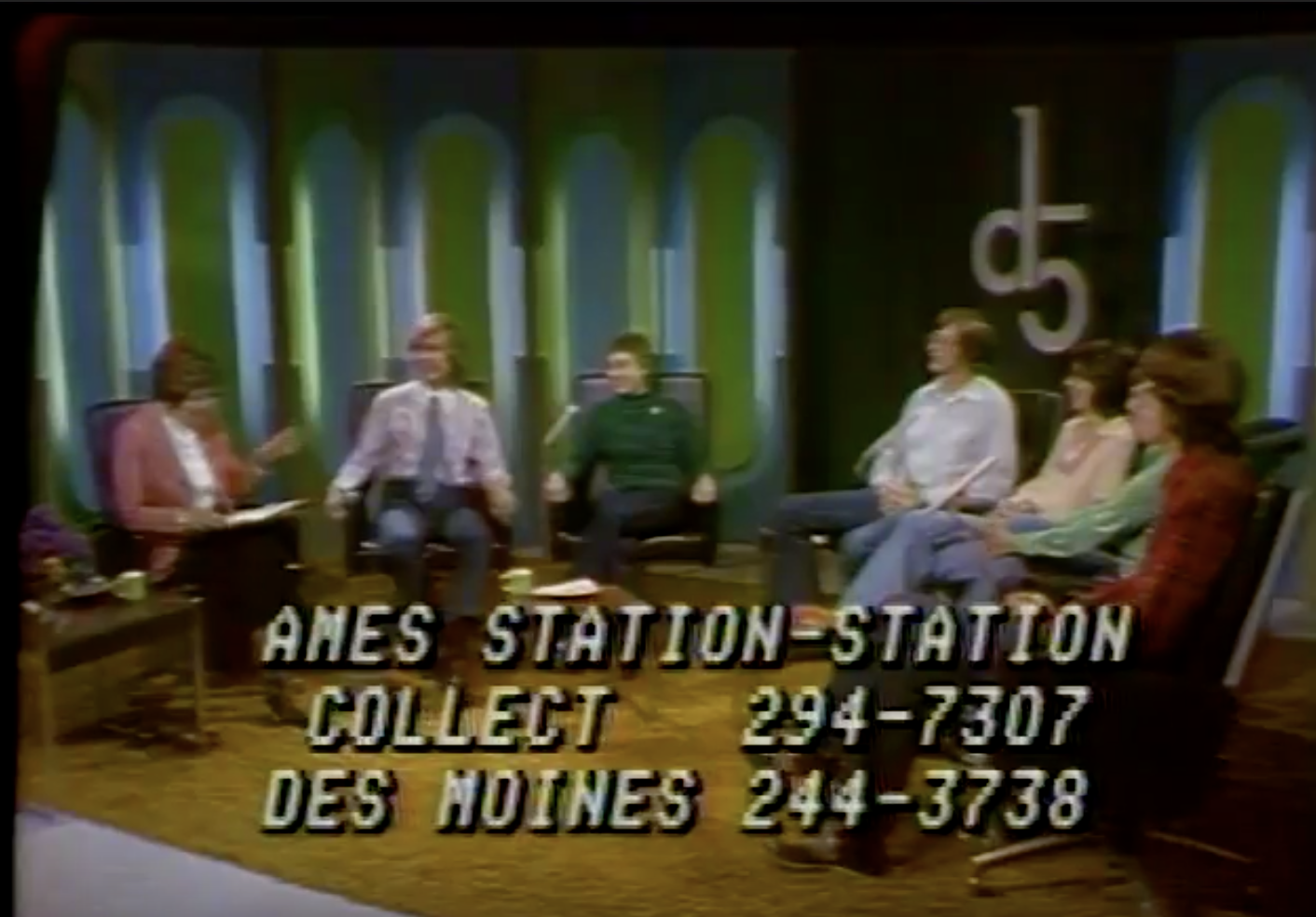
The program talked mostly about the Marcus Welby M.D. episode, as well as many questions that the host had. Further along the night, the phone line was opened for callers, and many people called quoting Bible verses at them, which represented how the LGBT+ community was being perceived in Ames. The segment was viewed so frequently that it had brought back to life the ratings for the show. This broadcast, furthermore, represented how student activism here at Iowa State University has influenced and shaped the views on the LGBT+ community in Iowa, and how they refused to stay silent in the midst of an injustice. The interview is conveniently available to you at the Special Collections and University Archive’s YouTube channel, under “Dimension 5: Gay People Alliance Tape 1”.
El programa hablaba principalmente del episodio de Marcus Welby M.D. así como de las muchas preguntas que tenía el anfitrión. Más a lo largo de la noche, se abrió la línea telefónica para las personas que llamaban, y muchas personas llamaron a citar versículos bíblicos, lo que representaba cómo se percibía a la comunidad LGBT + en Ames. El segmento se veía con tanta frecuencia que había devuelto a la vida las calificaciones para el programa. Además, esta transmisión representó cómo el activismo estudiantil aquí en “Iowa State University” ha influido y configurado las opiniones sobre la comunidad LGBT + en Iowa, y cómo se negaron a permanecer en silencio en medio de una injusticia. La entrevista está disponible para usted en el canal de YouTube de Colecciones Especiales y el Archivo de la Universidad, bajo “Dimensión 5: Gay People Alliance Tape 1“.
Additionally, we have the original Dimension 5 notes for that specific broadcast in the Betty Lou Varnum papers at SCUA [RS 5/6/53].
Además, tenemos las notas originales de Dimensión 5 para esa emisión específica en los documentos de Betty Lou Varnum en SCUA [RS 5/6/53].
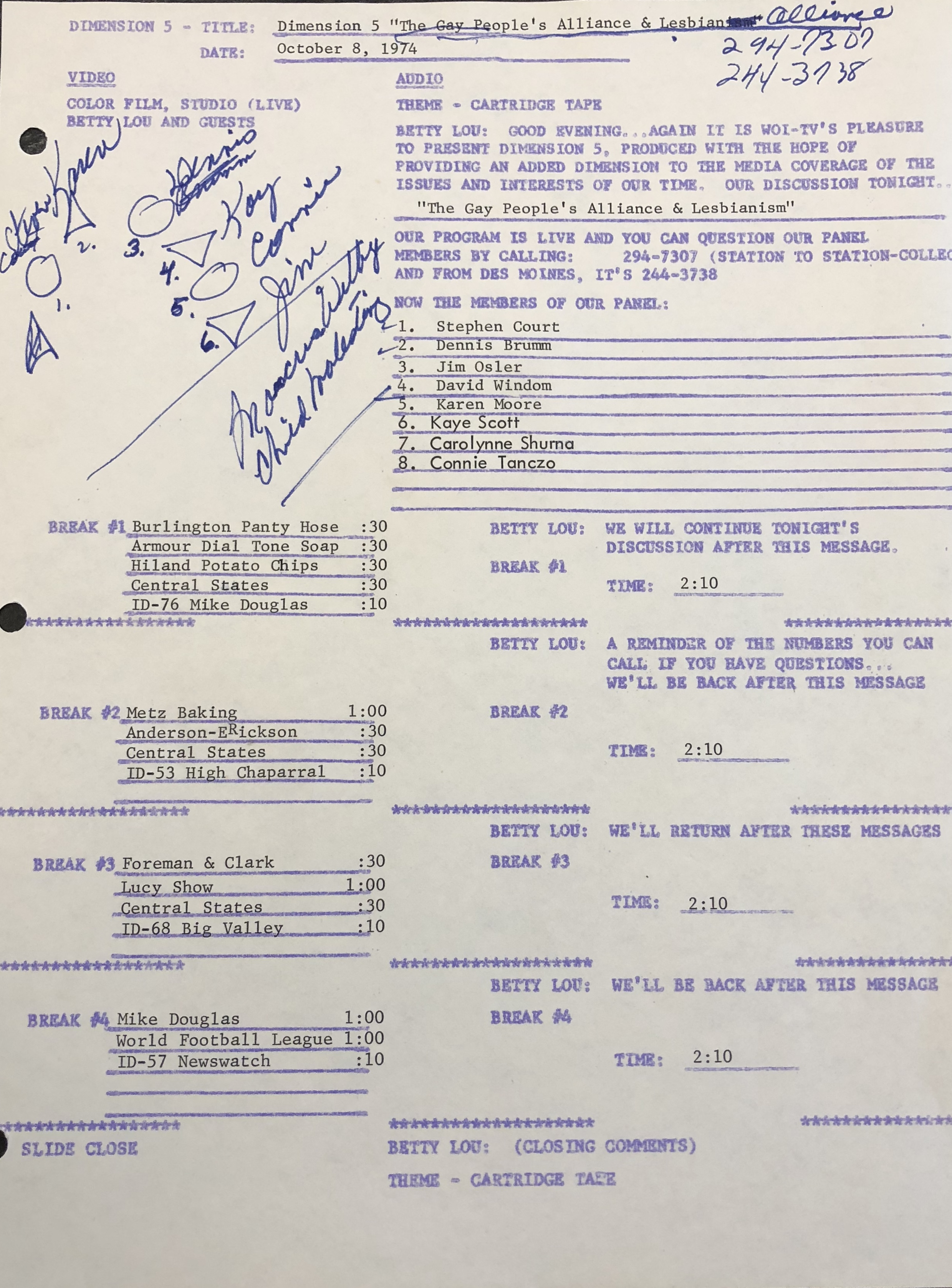
If you have any other materials regarding LGBT+ student life here on campus, please feel free to reach out to the Special Collections and University Archives at ISU to talk about how you can possibly preserve and help us develop the history of the community in the university.
Si tiene cualquier otro material relacionado con la vida estudiantil LGBT + aquí en el campus, no dude en comunicarse con las Colecciones Especiales y los Archivos Universitarios en ISU para hablar sobre cómo posiblemente puede preservar y ayudarnos a desarrollar la historia de la comunidad en la universidad.
![]()
About this entry
Original Post: LGBT+ History Month: “Early LGBT+ Student Activism / Activismo Estudiantil Temprano LGBT+” by Research Assistant Luis Gonzalez-Diaz
Publication Date: October 29, 2018
References
- Betty Lou Varnum Papers, RS 5/6/53, Iowa State University Library Special Collections and University Archives.
- Iowa State University Department of Speech Communication, Theatrical Production records, RS 13/23/3, Iowa State University Library Special Collections and University Library.
- Iowa State University, WOI Radio and Television records, RS 5/6, Iowa State University Library Special Collections and University Archives.

